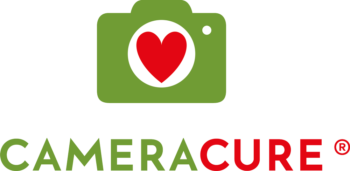Task 42 – Control your control
Task 42
Control your control

Was it cloudy or sunny that day? How would the photo have turned out if the sun was shining in from the left?
Santiago de Cuba, Cuba, 2014. Photo: Tove Lauluten
Problem
Lack of control
About the same time as my pimples disappeared, my hair began to thin out as well. Of course, it was humiliating. My pimples kept the girls away for many years, and and now my receding hairline could keep the women away. I became more and more bad-tempered as the useless remedies did nothing but empty my wallet. It took all too long a time before I realized how futile it was to fight against this. Looking discontented did not help my appearance either. Rather, I took control over something I could control, something that could draw attention away from my wispy hair – putting my money into a cool hat or a colorful shirt, growing a becoming mustache, and smiling more broadly…It worked; I got both a wife and children.
Using a camera gives you experience in taking control. We learn to decide what we are going to photograph, how many pictures we are going to take in what way, from which position and when. This provides valuable experiences that we can transfer to our everyday lives. We learn how to control the factors we can control and accept what we can’t control.
At my doctor’s office, I find that many patients make themselves ill by struggling to control something that cannot be controlled. They may try to improve a spouse or co-worker who has not changed in at least thirty years. They use a lot of time getting irritated over something that happened in the past that they can’t change no matter what, while at the same time spending remarkably little time on what they can actually control, such as quitting a job they don’t like, spending less time with an annoying friend or more time on an activity that they love.
The time and energy that goes into trying to control what is beyond our control limits our capacity to control what we are able to control. Too little control is just as bad. Not being assertive and letting circumstances and people control our position is equally taxing and frustrating.
Do you use time worrying or being irritated at circumstances you nevertheless can’t control? Could you have used this energy on something you can actually have some say over? Which area in your life can you get more control over?
How relevant is this issue for you on a scale of 1 to 6?:
Solution
Adjust the control
At photo workshops we practice varying the control of the photo-session. Sometimes we have to take control, other times we have to let it go. For example, occasionally a photograp- her is invited in by a family to have some tea. Often what happens is that the host takes over control and they have specific photos that they want the photographer to take. Afterwards you walk away with little more than the experience of being there. This is a situation that I recognize quite well after all of my travels. Therefore, I ask the workshop participants to go back to the same family now that such good chemistry between them has been established. But this time they have to take more control over the photography. I ask them to bring paper prints of the photos they took the day before. Thus, they increase the goodwill between them and have gotten a better position from which to take control.
With a camera we can photograph what we witness. Or we can intervene and influence what is going on. We have three choices: accept a lack of control, take control or move on. It takes a lot of trial and error to become good at evaluating this. The experiences we have gained behind the camera make it easier to make the same choices in our daily lives as well.
Are you a person that needs to take more control, or one that needs to let go? Are you a control freak, or do you struggle with taking control? Paradoxically, it is when we tolerate losing it that we have the most control.
PHOTO ASSIGNMENT:
If you are the type of person who needs to let go of control:
Find subjects in your everyday life that you can’t control such as, for example, a river that runs under a bridge you walk over on your way to work, your child who will not sit still, your cat that never does what you want…or a street photo where cars, people and dogs rush by without paying the slightest attention to you.
If, on the other hand, you are the type of person who needs to take more control:
Take pictures of something that can be controlled – maybe a portrait of a co-worker against a nice backdrop, a work desk tidied up the way you want it to be, an installation of driftwood at the seafront that you have composed…or what about a photo of your obedient dog?
BOOK SUGGESTION: Zen in the Art of Archery by Eugen Herrigel
❞ God, grant me the serenity to accept the things I cannot change,
Reinhold Niebuhr
Courage to change the things I can,
And wisdom to know the difference.
❞ You have power over your mind – not outside events. Realize this, and you will find strength.
Marcus Aurelius
❞ You can inspire, guide and push, but you can only control one person: yourself.
Phillip McGraw
[note_editor]

